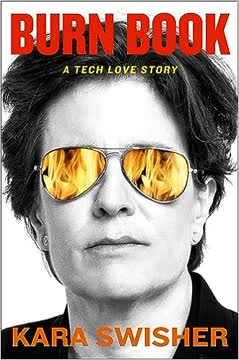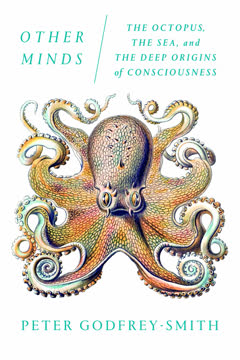Key Takeaways
1. Progress has stagnated since the 1970s, with dire consequences for society
"We wanted flying cars, instead we got 140 characters."
Stagnation is real. Despite the rhetoric of exponential growth and accelerating change, technological progress has slowed significantly since the 1970s. This is evident in:
- Flat median wages since 1971
- Increasing frequency and magnitude of economic bubbles and busts
- Failed predictions from the space age (e.g. 15-hour work weeks by 2000)
- Degradation of science fiction from optimistic (Star Trek) to dystopian (Terminator)
Consequences are severe. The lack of progress has led to:
- Declining trust in institutions
- Rising inequality and social unrest
- Reduced ability to solve major global challenges
Innovation is geographically concentrated. Throughout history, progress has been driven by specific creative clusters (e.g. Renaissance Italy, Victorian Britain, Silicon Valley). These clusters eventually decline unless renewed by competition and new entrants.
2. Universities are selling expensive, often useless credentials rather than education
"Higher education has become America's national religion, complete with heaven and hell, salvation and damnation. You're a winner or a sinner. It's Yale or jail."
Credentials over learning. Universities have become focused on selling expensive diplomas rather than providing genuine education:
- College costs have increased 400% since the 1970s
- Little evidence that college improves critical thinking or other skills
- "Sheepskin effect": Huge wage premium for completing final year, despite minimal learning
Waste and debt. The current system:
- Saddles students with crushing debt
- Delays entry into workforce and innovation
- Rewards conformity over creativity
Alternatives needed. The author argues for new models that:
- Allow young people to learn by doing
- Provide faster paths to the frontier of knowledge
- Judge people by their abilities, not credentials
3. The Thiel Fellowship challenges traditional education by backing young dropouts
"Change the world and call it a senior thesis."
Radical experiment. The Thiel Fellowship offers $100,000 grants to people under 20 to pursue their ideas outside of college:
- Launched in 2011 by Peter Thiel
- Aims to accelerate innovation by freeing young talent from institutional constraints
- Has backed successful ventures like Ethereum (now worth billions)
Selection process. The fellowship looks for:
- Technical brilliance combined with traits like "edge control" and "hyperfluency"
- Ability to articulate ambitious, but plausible long-term visions
- Willingness to challenge conventional wisdom
Controversy and results. While criticized by the establishment:
- Many fellows have launched successful companies and made significant discoveries
- Demonstrates alternative paths to impact beyond traditional credentials
4. Venture capital is dominated by established firms, but outsiders can succeed
"If you have conviction, don't come talk to me about it until you have a VAR of four."
VC landscape. The venture capital industry is heavily skewed towards established firms:
- Most funds fail (80% don't return capital)
- Top firms have strong network effects and brand advantages
- Difficult for new entrants to break in
1517 Fund's approach. The author's fund succeeded as an outsider by:
- Focusing exclusively on dropouts and those without college degrees
- Developing unique talent-spotting methods
- Building a strong community and support network for founders
Challenges remain. Even with success, the fund faced:
- Resistance from established players ("cram-downs")
- Skepticism from traditional investors
- Need to constantly prove their thesis
5. Silicon Valley's decline mirrors broader institutional failures in America
"San Francisco established anarcho-tyranny. Everything was allowed, but nothing was permitted."
Paradise lost. San Francisco, once the heart of innovation, has declined due to:
- Dysfunctional governance (e.g. housing restrictions, permitting delays)
- Rising costs pushing out creative class
- Growing homelessness and public safety issues
- Exodus of talent and companies to other regions
Broader trend. This decline reflects wider institutional failures:
- Increasing bureaucracy and regulation stifling innovation
- Capture by special interests and incumbent players
- Loss of frontier mentality and willingness to take risks
Need for renewal. The author argues for:
- New "special economic zones" to allow for policy experimentation
- Institutional competition to drive progress
- Rediscovering the spirit of dynamism and risk-taking
6. Technological breakthroughs are needed in energy, health, education, and more
"Aging is the leading cause of death and suffering in the world."
Key frontiers. The book identifies critical areas for innovation:
Energy:
- Fusion and next-generation nuclear
- Improved solar, wind, and geothermal
- Grid-scale energy storage
Health:
- Curing aging (e.g. cellular reprogramming)
- Cancer immunotherapies
- Rapid vaccine development
Education:
- Personalized learning at scale
- Alternatives to traditional classrooms
- Improved motivation and retention techniques
Others:
- Autonomous vehicles
- Quantum computing
- Water abundance (desalination, atmospheric water generation)
Challenges. Progress requires:
- Increased funding for basic research
- Regulatory reform to allow faster iteration
- Cultural shift to value long-term, high-risk projects
7. Human flourishing requires more than just controlling our reactions to events
"Live in the thundercloud, even as a ship without a mast, barely better than drifting its way home, but still set in its reckoning on some monstrous and infinite sea."
Beyond Stoicism. While popular, Stoic philosophy and its modern interpretations are insufficient:
- Focus on controlling reactions can lead to detachment from reality
- Ignores importance of external goods and relationships
- Can become an excuse for complacency in face of genuine problems
Keys to flourishing:
- Sense of belonging and community
- Meaningful purpose and contribution
- Embracing both positive and negative emotions
- Taking action to improve external circumstances
Call to action. The author urges readers to:
- Engage with the world rather than retreating into mental fortresses
- Work to solve real problems and advance human progress
- Build strong relationships and communities
- Find meaning in the struggle, not just in controlling reactions
Last updated:
FAQ
What's Paper Belt on Fire about?
- Focus on Innovation Stagnation: The book explores the decline in technological and scientific progress in the U.S. since the 1970s, attributing it to a loss of the American frontier spirit.
- Critique of Higher Education: It critiques the current education system for stifling creativity and innovation, coining the term "Paper Belt" to describe these outdated institutions.
- Support for Young Innovators: The narrative highlights the Thiel Fellowship and the 1517 Fund, which support young entrepreneurs who challenge traditional educational paths.
Why should I read Paper Belt on Fire?
- Insightful Analysis: The book provides a thorough analysis of the factors contributing to innovation stagnation and offers a fresh perspective on societal challenges.
- Inspiration for Change: It serves as a call to action for young people to pursue significant problems and innovate outside traditional frameworks.
- Engaging Narrative: The author weaves personal anecdotes with broader societal critiques, making the book both informative and engaging.
What are the key takeaways of Paper Belt on Fire?
- Stagnation in Progress: The book argues that the rate of scientific and technological progress has flatlined since around 1971.
- Value of Non-Traditional Paths: It emphasizes the importance of supporting young innovators who may not follow the conventional college route.
- Critique of Credentialism: The book critiques the obsession with degrees and credentials, advocating for alternative educational paths.
What are the best quotes from Paper Belt on Fire and what do they mean?
- “We don’t believe in indulgences.”: Critiques universities for selling diplomas as the only path to success, likening it to the sale of indulgences by the Catholic Church.
- “The strong do what they can, the weak suffer what they must.”: Illustrates the harsh realities of power dynamics in venture capital.
- “Nature loves to hide her secrets.”: Advocates for seeking out hidden talent and potential in unexpected places.
How does [Author] define the "Paper Belt" in Paper Belt on Fire?
- Critique of Established Institutions: The "Paper Belt" refers to the network of outdated institutions resistant to change and innovation.
- Symbol of Stagnation: It symbolizes the bureaucratic mindset that stifles creativity and progress.
- Call for Reform: The author argues for the need to dismantle or reform these institutions to foster creativity and technological advancement.
What is the Thiel Fellowship and its significance in Paper Belt on Fire?
- Support for Young Innovators: Awards $100,000 grants to young people under 20 to pursue innovative projects instead of attending college.
- Counteracting Credentialism: Challenges the notion that a college degree is necessary for success, empowering young people to explore their ideas.
- Success Stories: Highlights successful fellows like Vitalik Buterin, showcasing the potential of investing in unconventional talent.
What is the Nakamoto Consensus as described in Paper Belt on Fire?
- Decentralized Decision-Making: Refers to a method of achieving agreement in a decentralized network, allowing for innovation without a central authority.
- Contrast to Traditional Models: Opposes the centralized power structures of traditional institutions, promoting a more democratic approach.
- Implications for Innovation: Suggests that new technologies, like blockchain, can create systems more resilient and adaptable than existing institutions.
How does Paper Belt on Fire address the failures of the education system?
- Stagnant Learning Outcomes: Presents evidence that despite increased spending, student learning outcomes have not improved significantly.
- Focus on Time Over Knowledge: Critiques the emphasis on time spent in classrooms rather than actual knowledge acquisition.
- Need for Alternative Models: Advocates for educational models prioritizing hands-on experience and innovation over traditional academic paths.
How does the author view the relationship between innovation and institutions in Paper Belt on Fire?
- Mutual Dependence: Argues that innovation and institutions are interdependent; as institutions fail to adapt, innovation suffers.
- Need for Disruption: Believes existing institutions must be disrupted or reformed to create an environment conducive to innovation.
- Role of Venture Capital: Portrays venture capital as a means to support innovative ideas outside traditional institutional frameworks.
What role do young innovators play in the future according to Paper Belt on Fire?
- Catalysts for Change: Seen as essential to breaking the cycle of stagnation and driving progress in science and technology.
- Diverse Backgrounds: Emphasizes that talent can come from unexpected places, supporting diverse paths for groundbreaking discoveries.
- Empowerment through Funding: By providing funding and resources, the Thiel Fellowship and 1517 Fund aim to empower the next generation.
How does Paper Belt on Fire address the issue of climate change?
- Critique of Current Solutions: Critiques current approaches, arguing they focus on conservation rather than innovation.
- Potential for New Technologies: Discusses technologies like fusion energy and advanced irrigation techniques to mitigate climate change.
- Call for Action: Emphasizes the need for urgency in addressing climate change through a culture of innovation.
What are the challenges faced by the 1517 Fund as described in Paper Belt on Fire?
- Skepticism from Traditional VCs: Faces skepticism from established venture capitalists questioning the viability of investing in dropouts.
- Building a Track Record: Must establish a track record of success to attract further investment and credibility.
- Navigating Institutional Resistance: Must navigate resistance from traditional institutions threatened by its unconventional approach.
Review Summary
Paper Belt on Fire receives mixed reviews, with an average rating of 3.93/5. Readers appreciate Gibson's insider perspective on the Thiel Fellowship and 1517 Fund, praising his insights into innovation and education reform. Many find the book engaging and thought-provoking, particularly regarding the future of technology and learning. However, some criticize Gibson's writing style, lack of evidence for claims, and overreliance on exceptional examples. The book's structure and focus are also debated, with some finding it disjointed or self-serving.
Similar Books










Download PDF
Download EPUB
.epub digital book format is ideal for reading ebooks on phones, tablets, and e-readers.




